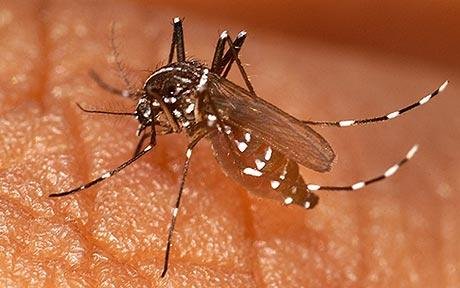India needs to broaden its Malaria tackling strategy: WHO
July 30, 2015 | Thursday | News | By BioSpectrum Bureau
India needs to broaden its Malaria tackling strategy: WHO
Malaria is caused by a one-celled parasite called a Plasmodium. Female Anopheles mosquitoes pick up the parasite from infected people.
As nearly 3.2 billion people continue to live in areas with risk of malaria infection, malaria needs to be high on the global agenda to achieve the target of 90 percent reduction in deaths and disease, and elimination in 35 countries by 2030. This has been stated by the WHO.
"Our efforts so far focused on the most deadly P. falciparum malaria. We need to now broaden our strategy to include targeted interventions for P. vivax malaria, which is contributing to a large proportion of global malaria burden, mainly in the WHO South-East Asia Region," Dr Poonam Khetrapal Singh, Regional Director, said at a global malaria meeting on July 29, 2015.
Of the 18.9 million P. vivax malaria cases reported in 2012, nearly 13 million were from countries in the WHO South-East Asia Region, mainly India.
"We need targeted strategies for P. vivax malaria which presents distinct challenges for control and elimination compared to P. falciparum. It is proving to be an extremely difficult parasite as it does not readily respond to the existing control measures and has the ability to remain hidden and beyond the reach of the currently available diagnostic tools and medication," Dr Khetrapal Singh said.
P. vivax malaria is now the only remaining cause of malaria in countries that have eliminated P. falciparum malaria. More than a third of the world's population, mostly in Asia and Latin America, is at risk of P. vivax malaria.
There is growing evidence that P. vivax malaria can cause severe disease and can also be fatal. WHO estimates that it could be responsible for up to 15% malaria deaths outside of Africa, as per the 'Technical Brief on Control and Elimination of P. vivax malaria,' launched at the meeting. The technical brief, developed with support from Medicines for Malaria Venture, provides information on, among others, the ways to address the challenges that are unique to P. vivax malaria.
The revitalized efforts for malaria elimination should address technical challenges such as multidrug resistance, vector resistance to insecticides, outdoor transmission, and those related to relapsing of P. vivax malaria. Health systems issues such as inadequate health staff, poor delivery of health services and weak surveillance should be resolved.
Since the determinants of malaria are mainly socio-economic, the focus should be beyond the health sector, and to strengthen cross-border collaboration for elimination of malaria and prevention of its re-emergence.
Reducing the burden of malaria is part of Sustainable Development Goals 2030. In May 2015 the World Health Assembly adopted the Malaria Global Technical Strategy 2016 - 2030 which aims to reduce malaria deaths and disease by at least 90% and eliminate malaria in at least 35 countries by 2030.









